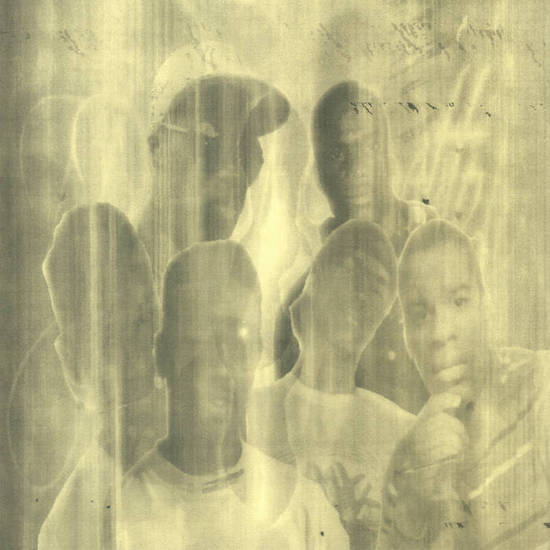The history of electronic dance music is too often narrowed down to well-known seminal releases like Warp’s Artificial Intelligence compilation or Goldie’s debut Timeless, which left a global mark from an anglocentric perspective. Music writers sometimes resemble horses with blinkers, unable to see left and right from the centre. Consequently, there’s little general knowledge about other electronic music scenes outside of Detroit, Chicago, London and Berlin, be it the history of Dutch bubbling, Brazilian baile funk, Angolan kuduro or Venezuelan raptor house. In the case of the latter, we’ve just recently witnessed its breakthrough on a global scale due to the justified hype around DJ Babatr, following his collaboration with Nick León on the 2022 hit track ‘Xtasis’. Seemingly, “the West” only discovered it twenty years later.
The fate of Lisbon’s influential label Príncipe, an ambassador of modern kuduro and batida, was fortunately a bit different. It definitely got the attention it deserved, and even became somewhat trendy in the mid-2010s, but I feel it retained a fringe position compared to UK and German labels, attracting accolades among predominantly niche audiences, much less among the “trendy crowd”. Interestingly though, Príncipe set the wheels in motion for the international flourishing of contemporary club music employing Afro-Latin rhythms – one of the major dance music trends of the post-Covid era.
It’s telling that Príncipe’s been a bit overlooked by dance music media in recent years. It’s maybe due to their established status, or perhaps their disinterest in fashion, trends and political agendas, rather putting their energy into representing the Lisbon underground. The Príncipe artists, mostly first and second generation African immigrants of Angolan and Cape Verdean origin, have inventively reimagined the sounds of batida (the instrumental version of the Angolan vocal style kuduro) and tarraxo (a moody, dark-hued spin on the more mainstream, brighter and sugary sound of kizomba), as well as Afro house.
Their latest release, an archival compilation representing an important moment in the history of diasporic dance music, brings the label’s story full circle. It takes us back to ground zero, the year 2006, when the compilation DJs Di Guetto Vol.1 was released – the same year Burial’s ground-breaking debut came out. It’s a cultural document encapsulating the creative energy of the bairros, quarters on the outskirts of Lisbon, where Afro-Portuguese communities, isolated from the centre, developed their own kind of block parties, DJ crews and, most importantly, singular mutations of kuduro and kizomba sounds.
For the re-release, the label trimmed the selection from thirty-seven down to thirteen tracks. The productions are characterised by a similar drive and simplicity as DJ Babatr’s “Caracas street sounds” found on his recent reissues, featuring tracks from the 2001–2005 period, the apex of raptor house. It’s fascinating that kindred sensibilities were being explored on two continents, two cities, two types of “bairros” almost simultaneously. Listening to these early tracks by DJ Marfox, DJ N.K., DJ Jesse, DJ Fofuxo and their mentor DJ Nervoso, you realise how ahead of the curve they were. I can only imagine what it would’ve felt like hearing these rudimental beat tracks at a time when UK funky was still in its infancy, dubstep and grime were pushing the envelope and minimal techno was at an all time high. Repetitive and stripped-back like the early Chicago acid house trax or Robert Hood’s minimal productions, what they lack in dynamism, they complement with forcefulness and groove.
Seen through a cultural history lens, the impact of this compilation reminds me of that of Gqom Oh! The Sound of Durban, Vol. 1 (2016), which shed light on the South African city of Durban, and Nyege Nyege’s Sounds of Sisso (2017), which presented Tanzania’s singeli sound. Listening to it feels a bit like discovering early hardcore records or even early blues records. It’s marked by a sense of urgency, exemplifying creativity out of need, not out of trend-hopping ambition. There’s almost an amateurish aspect to it, a kind of “let’s find out what happens next” approach. The intensity of these riddims speaks volumes about the sincere experimentalism that fuelled their creation. They sound as fresh today as they did back then. Considering the open-mindedness of modern ravers, they are sure to cause as much devastation on modern dancefloors as they did at local street parties where dancers, caught in a dancing spree, would allegedly climb walls.


